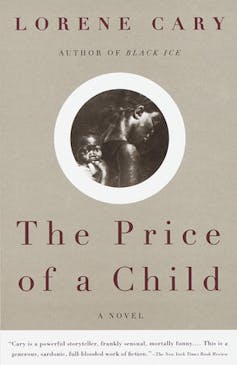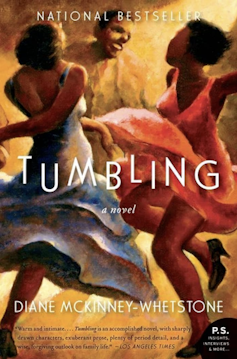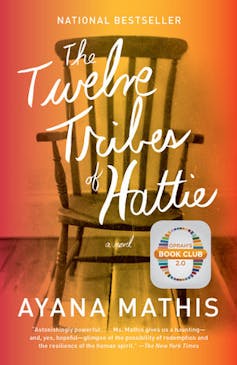The four works described below, all written by Black Philadelphia women, appear in my new anthology, “A Black Philadelphia Reader: African American Writings about the City of Brotherly Love.” I’m a professor of English at Long Island University, and I’ve edited several anthologies of African American and Afro Caribbean authors as well as a collection of writings about Coney Island. My latest book features fiction, nonfiction and poetry written by Philadelphia-based writers from the city’s founding to the present day.
Despite the daunting challenges Black Philadelphians have faced throughout history – including racial prejudice and gender inequality in housing, public transportation, education, public health and criminal justice – these four writers convey an enduring faith in family and community, and a hope that Philadelphia will fulfill its promises of equality to its Black citizens.
While the stories here are centered on Black Philadelphians, I believe their messages and lessons are universal.
Berkley Trade/Penguin Publishing Group
‘Sweet Summer: Growing Up With and Without My Dad’ (1989)
In this bittersweet memoir, Bebe Moore Campbell, a bestselling novelist who died in 2006, tells a poignant coming-of-age story of growing up in the 1960s in a family separated by both divorce and geographic distance.
During the school year, young Bebe lives in North Philadelphia, trying to meet the high expectations of her mother, grandmother, aunts and female teachers. Although she knows she is deeply loved by them, she longs for the more relaxing summers spent in North Carolina with her father, who does not let his confinement in a wheelchair limit his dreams.
In these two worlds, Bebe realizes that there is no one way to show love, and that families can exist in many forms. Though she longs for a united home, the young girl grows up with a strong sense of family and self, and of learning the lesson that no distance can truly separate people if they love one another.

Penguin Random House
‘The Price of a Child’ (1995)
Lorene Cary is a renowned novelist, playwright and memoirist. This historical novel tells the moving story of an enslaved woman, Ginnie Pryor – later named Mercer Gray – who, with the assistance of abolitionists, gains freedom for herself and her two children in Philadelphia in 1855.
Because Philadelphia was the closest big city above the Mason-Dixon Line, which separates the North from the South, it was often the place where enslaved people first tasted freedom. However, Mercer realizes that her freedom is tenuous since after the Fugitive Slave Act of 1850, she could be captured and returned to the South.
She also feels that her freedom obligates her to help others still in the bonds of slavery and aid the white abolitionist imprisoned as a result of her escape. Most of all, she must cope with the terrible price of her freedom: leaving her youngest child behind in Virginia, where he is still enslaved.
Mercer can never escape the haunting memory of her missing child until she finally receives a monetary gift sufficient to buy his freedom. Based largely on the true story of Jane Johnson, which was recorded in William Still’s “The Underground Railroad Records,” this novel was chosen as the first selection for the citywide reading program, One Book, One Philadelphia, in 2003, and it is still worth a read today.

Harper Collins Publishers
‘Tumbling’ (1996)
West Philadelphia native Diane McKinney-Whetstone has written several acclaimed novels. Her debut, “Tumbling,” is set in the South Street and South Philadelphia areas in the 1940s and 1950s.
The main characters – Noon, a God-fearing woman, and Herbie, her nightclub-loving husband – seem to be a mismatched couple. However, they love each other despite their differences. This love is strengthened when, on two separate occasions, they take in, with the support of their tight-knit community, abandoned baby girls left on their doorstep.
While the two girls form a true sisterly bond as they grow up, the community is soon threatened by another challenge: a municipal proposal to build a highway through the middle of the neighborhood. It is up to Noon to organize her neighbors to resist this bureaucratic nightmare and keep the community whole.

Penguin Random House
‘The Twelve Tribes of Hattie’ (2012)
This novel by Germantown native Ayana Mathis was a selection for Oprah’s Book Club 2.0. It begins in the 1920s, telling the story of young Hattie Shepherd, one of many Black Americans who left the South during the Great Migration. She resettled in the Germantown area of Philadelphia with the dream of many migrants to build a better life for herself and her family. Her optimism is reflected in the names of her first two children, Philadelphia and Jubilee.
However, Hattie painfully realizes that the North is no paradise. Her children die of illness, and she becomes disillusioned. Hattie has to make many adjustments to her new life: to the bitter winters, racial segregation and grueling poverty. She misses the sense of community that she had back home in Georgia. Still, her courage and determination enable her to survive these challenges as she raises nine more children and a grandchild – creating, with the two dead children, her 12 tribes. It is her offspring, as well as Hattie, who tell the stories, taking the novel up to 1980.







